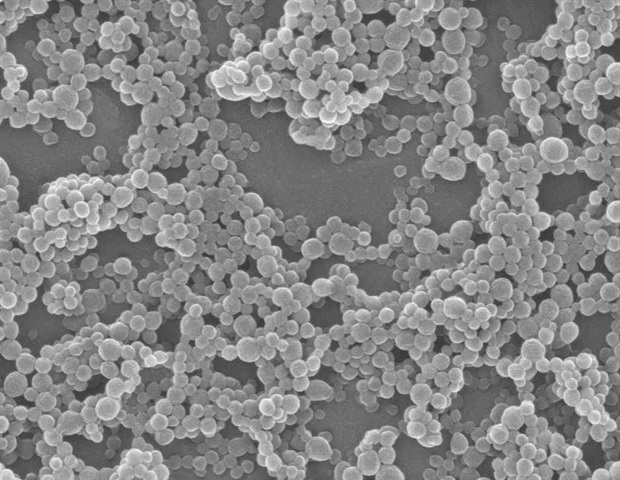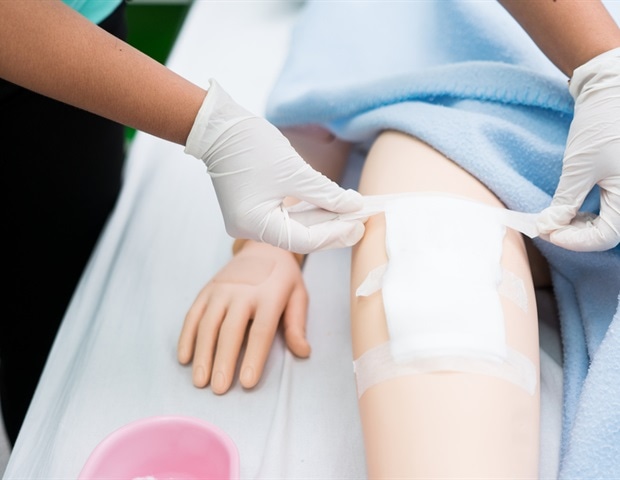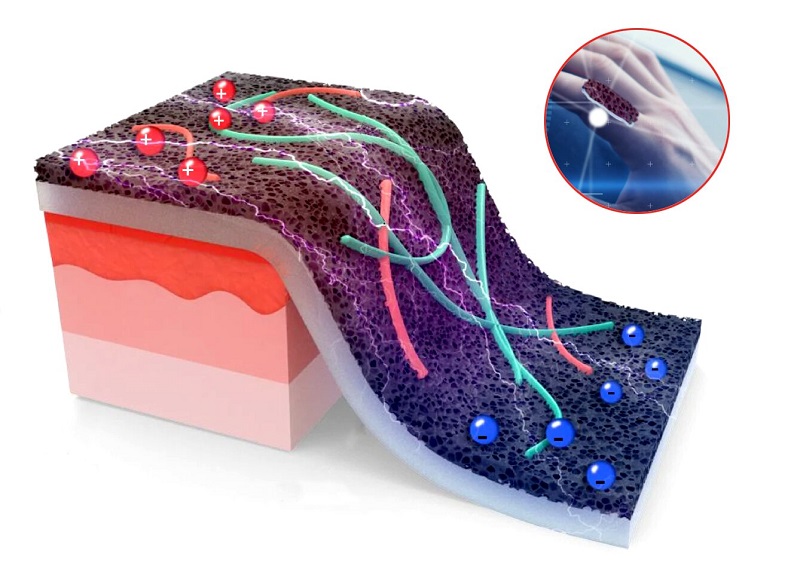A major challenge in self-powered wearable sensors for health care monitoring is distinguishing different signals when they occur at the same time.
Vous n'êtes pas connecté
- English
- Français
- عربي
- Español
- Deutsch
- Português
- русский язык
- Català
- Italiano
- Nederlands, Vlaams
- Norsk
- فارسی
- বাংলা
- اردو
- Azərbaycan dili
- Bahasa Indonesia
- Հայերեն
- Ελληνικά
- Bosanski jezik
- українська мова
- Íslenska
- Türkmen, Түркмен
- Türkçe
- Shqip
- Eesti keel
- magyar
- Қазақ тілі
- Kalaallisut ; kalaallit oqaasii
- Lietuvių kalba
- Latviešu valoda
- македонски јазик
- Монгол
- Bahasa Melayu ; بهاس ملايو
- ဗမာစာ
- Slovenščina
- тоҷикӣ ; toğikī ; تاجیکی
- ไทย
- O'zbek ; Ўзбек ; أۇزبېك
- Tiếng Việt
- ភាសាខ្មែរ
- རྫོང་ཁ
- Soomaaliga ; af Soomaali
 Maroc - NEWS.MEDICAL.NET - A la Une - 07/Feb 13:09
Maroc - NEWS.MEDICAL.NET - A la Une - 07/Feb 13:09
Bio-based "living" material with self-healing properties could revolutionize regenerative medicine
A biomaterial that can mimic certain behaviors within biological tissues could advance regenerative medicine, disease modeling, soft robotics and more, according to researchers at Penn State.
Articles similaires
New Blood Test Could Improve Alzheimer’s Disease Diagnosis
Up to half of all people living with Alzheimer’s Disease in Ireland remain undiagnosed. Now, a new blood test may have the potential to transform...
New smart bandage tracks wound healing without pain
Scientists from Penn State and Hebei University of Technology have created an advanced self-powered sensor that could change how doctors monitor...
Harnessing failure as an asset: How researchers are innovating smarter wearable tech
In the world of soft robotics and wearable technology, sheet-based fluidic devices are revolutionizing how lightweight, flexible and multifunctional...
A Scar-Free Approach to Combat Age-Related Muscle Atrophy
Researchers have developed a regenerative medicine method that successfully grafts myoblasts onto healthy muscle, boosting mass in mice by 10%.
New nasal spray could slow down Alzheimer’s disease
Researchers at Texas A&M University College of Medicine have developed a new therapy that may slow the progression of Alzheimer’s disease by several...
How researchers are innovating smarter wearable tech
Daniel J. Preston, corresponding author and assistant professor of mechanical engineering, and Sofia Urbina, co-first author of the study, second-year...
Novel MSC-based therapy provides hope for ocular GVHD treatment
Graft-versus-host disease (GVHD) is a common and severe complication that occurs after stem cell transplantation, where the donor's immune cells...
Ronaldo's Siuuu celebration: Whole-body training model allows robots to mimic famous athlete moves
A team of AI and robotics researchers at Carnegie Mellon University, working with a pair of colleagues from technology company NVIDIA, has developed a...
Self-powered graphene smart sensor takes the pain out of wound monitoring
A major challenge in self-powered wearable sensors for health care monitoring is distinguishing different signals when they occur at the same time....
Les derniers communiqués
-
Aucun élément






